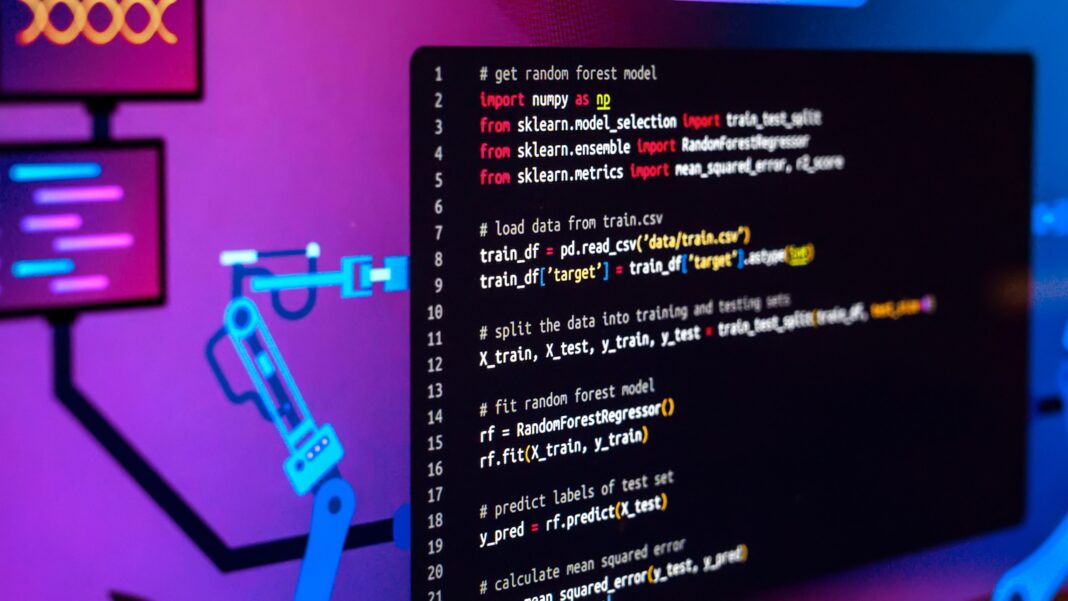The realm of web development is always changing, with new technologies popping up left and right. One of these game-changers is artificial intelligence (AI), which is completely reshaping how we build and interact with web applications. This is particularly true for Django, a popular Python web framework known for its speedy development and powerful features. When AI is harnessed, Django development services can create web experiences that are intelligent, dynamic, and user-centric.
So, why choose Django for AI? Well, Django’s popularity stems from its philosophy of simplifying common web development tasks. It offers handy features like an object-relational mapper (ORM) for easy database interaction, a robust URL dispatcher for managing user requests, and a built-in templating engine for creating user interfaces. For Django development companies and agencies, this means shorter development cycles and a solid foundation for incorporating AI capabilities.
The potential of integrating AI into Django projects is vast, and the benefits are compelling. Let’s explore some of the ways Django development with AI can revolutionize your web applications:
1. Enhanced User Personalization:
AI algorithms can analyze user behavior, preferences, and past interactions. This allows Django development agencies to personalize content recommendations, product suggestions, and search results in real time. Imagine an e-commerce platform that tailors product suggestions based on a user’s browsing history, leading to a more engaging and efficient shopping experience.
2. Intelligent Content Creation and Curation:
AI can assist Django developers in generating content summaries, product descriptions, or even blog posts based on existing data. This saves valuable development time and resources while providing users with informative and relevant content. Furthermore, AI can curate content based on user preferences, ensuring users see information that resonates with their interests.
3. Streamlined User Interface Design:
AI-powered tools can analyze user interactions with a Django application’s interface. This data can be used to identify areas for improvement, such as clunky layouts or confusing navigation. Django development companies can then leverage these insights to optimize the user interface for easy navigation and seamless interaction.
4. Predictive Maintenance and Error Detection:
AI can be trained to analyze server logs and application data in Django projects. This allows for early detection of potential errors or performance bottlenecks. Additionally, AI can predict maintenance needs, enabling Django development teams to proactively address issues and prevent downtime.
5. Building Chatbots and Virtual Assistants:
Django provides a robust framework for creating chatbots and virtual assistants. By integrating AI with these tools, Django development agencies can build intelligent and interactive interfaces that can answer user questions, resolve queries, and provide on-demand support.
But AI’s influence doesn’t stop at writing code. It can also streamline Django development processes in other ways:
– Automated Code Testing: AI-powered tools can automate repetitive testing tasks, freeing up developers’ time for creative problem-solving and core development activities.
– Smart Code Completion: AI can understand coding patterns and suggest relevant code snippets as developers write code. This boosts efficiency and reduces the risk of errors in Django projects.
– Project Management and Resource Allocation: AI can analyze project data and predict potential delays or resource bottlenecks. This allows Django development companies to plan effectively, allocate resources strategically, and ensure projects stay on track.
While integrating AI into Django projects holds great promise, it’s important to approach it strategically. Here are some key considerations for Django development teams:
- Clearly Defined Goals: Before diving into AI integration, clearly define the goals you want to achieve. This will help determine the type of AI technology to leverage and how best to integrate it within the Django project.
- Data Availability and Quality: AI algorithms thrive on data. Make sure you have the necessary datasets available and that the data quality is high enough to effectively train and validate AI models.
- Security and Ethical Considerations: Just like with any AI application, security and ethical considerations are super important. Django development teams should take the right steps to ensure data privacy and responsible use of AI algorithms.
Conclusion: A Symbiotic Future
The future of Django development is all about working hand in hand with AI. By tapping into the power of AI, Django development services and agencies can create web applications that are smart, adaptive, and user-centered. Whether it’s creating personalized experiences, boosting application performance, or automating development tasks, AI opens up a world of possibilities to push the limits of Django development. As both Django and AI technologies continue to advance, the potential for crafting truly remarkable web experiences is endless.
You may also like,







